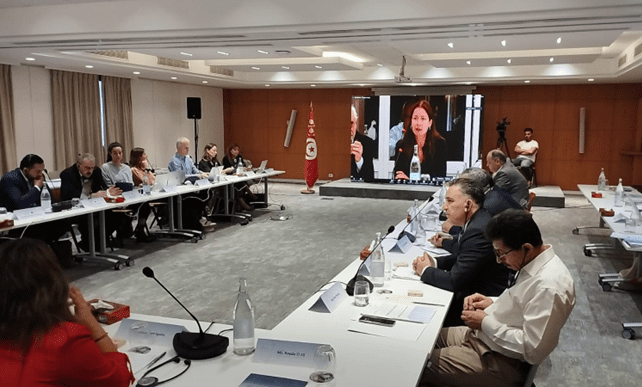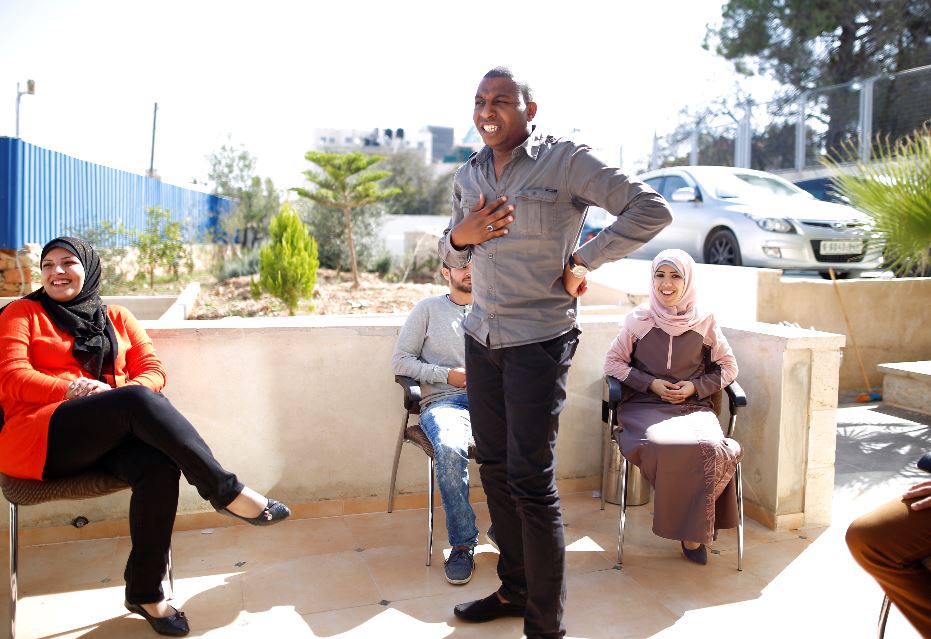A wave of environmental commitment is sweeping across the South Mediterranean region, with cities increasingly joining the fight against climate change. This momentum was highlighted at Clima-Med’s 7th Steering Committee Meeting held in Tunisia on October 22nd, where officials reported unprecedented growth in municipal participation in climate initiatives.
The meeting notably featured Ms Cristina Casella, Programme Manager for Climate Action & Blue Economy at the EU DG NEAR, Mr Paolo Scialla, Program Manager, Environment and Climate Change at the EU Delegation in Tunisia, along with focal points and representatives from various national and local authorities in the Mediterranean region.
The gathering brought together a diverse group of in-person and online stakeholders, including representatives from national and local authorities across the Mediterranean region. Their primary focus was evaluating Clima-Med’s activities and assessing the implementation of various climate initiatives, particularly the Covenant of Mayors for the Mediterranean (CoM Med) and reflecting on the outcomes and lessons learned from the “Cities for Climate” (C4C) Programme in Jordan and Tunisia.
The Covenant of Mayors for the Mediterranean (CoM Med) announced a significant surge in local commitment to climate action and expansion of its community, marking a turning point in regional climate action. “The impressive growth in municipalities joining the Covenant demonstrates a genuine commitment to environmental sustainability,” said Mr Abdel Kareem Al Zoubaidi, President of the Palestinian Union of Local Authorities (APLA). He attributed this success to strong partnerships between unions and local municipalities, awareness-raising efforts coupled with effective implementation of climate projects: “This isn’t just about numbers – it’s about creating real change in our communities.”
According to Mr. Hamza Al Mheirat, the Focal Point for the Ministry of Local Administration, Jordan’s approach to climate action has evolved significantly. While previous initiatives like CES Med focused on environmentally advanced municipalities, recent efforts with Clima-Med have broadened their scope. “We’ve implemented workshops for all municipalities, providing essential knowledge and tools for progress,” Al Mheirat noted. “The transformative impact of the workshops has been remarkable and effective regarding energy and climate planning .”
In Egypt’s Luxor Governorate, an agricultural waste management project has become a beacon of success, exceeding initial expectations. H.E. Ambassador Mohamed El-Ghazawy, Minister Plenipotentiary and Director of Euromed Affairs at Egypt’s Ministry of Foreign Affairs, reported that the project has successfully empowered the Governorate to reduce the burning of sugar cane residues and convert them into valuable resources. “These results set a new benchmark for what’s possible in regional climate action,” El-Ghazawy stated.
Ms. Hajer Bejaoui, Coordinator of the NVV C4C Project in Nabeul, revealed ambitious plans to expand climate initiatives to 350 municipalities. “The 2025 budget will provide crucial climate financing, enabling local governments to implement comprehensive energy and climate strategies,” Bejaoui explained. This access to funding represents a major step forward in Tunisia’s commitment to sustainable development and is crucial for local governments to effectively implement comprehensive energy and climate strategies.



























 Syria
Syria 




